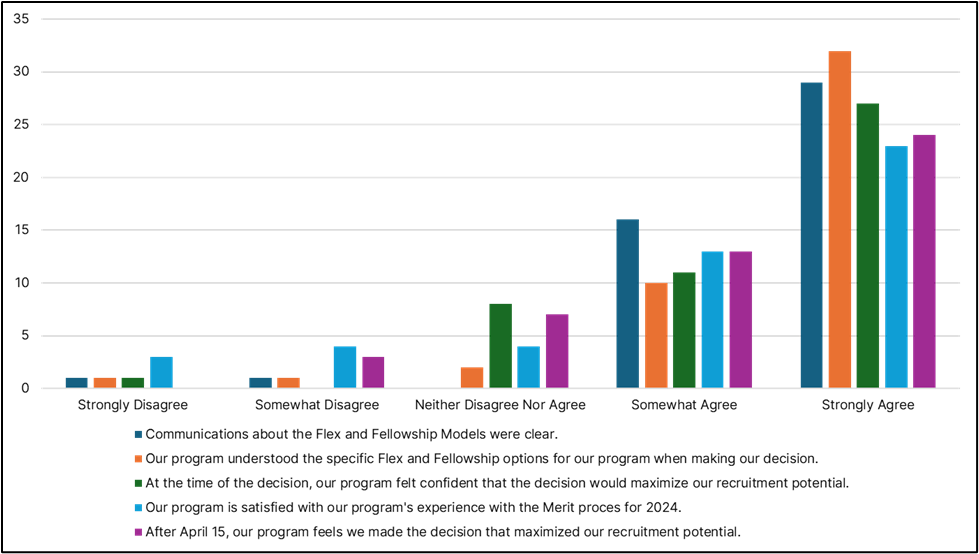Strategic Plan: Building on Excellence
Our Strategic Plan
To ensure The Graduate School is well-positioned to respond to the changing nature of graduate education and is structurally aligned with the University's strategic plan, our team went through a highly collaborative and iterative process to develop our 2023 Strategic Plan: Building on Excellence.
Building on Excellence is a three-year plan comprised of three pragmatic, strategic initiatives designed to further the mission of The Graduate School—with suggested key activities designed to implement each initiative.
These initiatives are grounded in The Graduate School's mission to advocate, collaborate, and convene on behalf of graduate and professional students.
Read the full Spring 2023 Strategic Plan![]()
Strategic Initiative #1: Enrolling for Excellence
Support academic excellence by collaborating with academic programs to identify high-priority admitted students and create a focused set of activities to increase the likelihood these students will enroll.
Strategic Initiative #1: Spring 2024 Update
Revisions to the Slate Student Admissions Tool
Historically, applicants to graduate programs at UNC-Chapel Hill who formally decline their admissions offers in Slate can complete a brief survey informing The Graduate School of why they are declining. The existing "Reply to Offer" form in the Slate Student Admissions Tool included an open text box used to indicate the school where applicants decided to enroll instead of enrolling at UNC-Chapel Hill. This resulted in data rife with spelling errors, abbreviations, etc., making it inconsistent and difficult to compare across responses.
To draw greater insight from survey results, the following updates were instituted:
- The questions were updated with additional response options to provide greater clarity on why an applicant declined.
- The survey was restructured to provide better flow for respondents and to provide greater detail for reporting purposes.
- The list of institutions students could select was pre-populated based on a list compiled by the College Board to ensure consistency in data.
- Only applicants declining an offer to a certificate program could have the ability to select the certificate-specific options on the form.
The working group also developed an online dashboard that will enable academic programs to review their applicants' admissions decisions, including where applicants enrolled and why, so programs can make informed decisions about their recruitment and admission processes.
Pilot Program for Recruitment Interventions
To better understand and support recruitment needs at the program level, the working group identified a subset of programs to participate in a pilot program aimed at identifying and recruiting top-ranked applicants. Each participating program received a budget for AY 2024-25. The working group held two focus groups with the program participants and met individually with the pilot participants in anticipation of the Spring 2024 admissions cycle.
Interventions. Each participating program was provided with a budget for their interventions, which was allocated based on the program's size.
- Virtual Information Session for Admitted Students. The Graduate School recruited five graduate students from a range of fields — linguistics, city and regional planning, maternal and child health, education and geography — to meet with admitted students virtually. This informational session was designed for current graduate students to provide admitted students with local knowledge and details on life in Chapel Hill and answer questions related to housing, groceries and transportation, e.g., "How much does it really cost to live here? What do students do to get by?"
- Information Session for Prospective Students. In consultation with the program, the working group invited representatives from The Graduate School to meet with the department's prospective students.
- Funding Incentives. Programs provided top-ranked applicants with one-time competitive grants to support moving expenses and general start-up costs.
- Graduate Student Host Incentives. Programs leveraged Graduate School funding to provide incentives to current graduate students to serve as hosts to their top-ranked candidates.
- Welcome Event and Travel Funds. Programs held a welcome event for newly admitted students with sample class experiences, lunch, a faculty panel, a Q&A session on financial aid, and a series of student panels.
- Application Fee Waivers. Programs waived the application fee for top-ranked students.
- Summer Tuition. Programs used pilot recruitment funds to offer three top-ranked admitted students summer tuition and fees as a top-up to their existing award offer.
Assessment of Fellowships Processes and Procedures
The working group convened a series of town halls to introduce revisions to the merit fellowship model and to solicit feedback on the fellowship timeline – with the goal of providing programs with greater flexibility during the recruitment cycle.
The working group shared strategic planning details, highlighted proposed changes to the merit fellowship process for the AY 2024-25 cycle, and outlined next steps for soliciting program feedback and implementing further updates for the AY 2025-26 recruitment cycle and beyond. As part of the presentation, the working group summarized the proposed Flexible Merit Model in contrast with the traditional Fellowship Funding Model.
| Flexible Funding Model | Traditional Fellowship Funding Model |
|---|---|
| Flexible award offered at program's discretion; lower total funding amount | Higher, set stipend for awardees |
| No benefits included | Benefits included (tuition, fees, GSHIP) |
| Guaranteed | Not guaranteed |
| Can be reallocated to other admits if decline | Offer unique to awardee (cannot be reallocated) |
| Programs notified in late February 2024 | Programs notified in December 2023 |
Just under half (44%) of doctoral programs, and about one-third (35%) of master's programs opted for the new flexible funding model. The survey was sent to programs on May 16, 2024. As of June 6, 2024, 30 doctoral programs and 17 master's programs have submitted responses. Of the 44 programs that answered, 24 out 27 Fellowship and 16 out of 17 Flex participants indicated they would choose the flexible funding model.

Figure 1. Program Feedback Regarding the Merit Fellowship Models
Strategic Initiative #2: Creating a Culture of Care
In collaboration with academic programs and units across campus, advocate for and support a University-wide framework to promote graduate student success and well-being so students can thrive from initial contact through graduation and beyond.
Strategic Initiative #2: Spring 2024 Update
Graduate and Professional Student Caregivers
The working group focused its efforts this year on supporting graduate and professional students with caregiving responsibilities, e.g., childcare, eldercare. This area of emphasis was informed in part by The Graduate School's strategic planning process, during which graduate students from a range of disciplines highlighted the importance of childcare.
The working group developed a survey to identify the number of graduate and professional students at UNC-Chapel Hill with caregiving responsibilities. The working group distributed the survey at Graduate Student Orientation on August 16, 2023, and The Graduate School's Fall Wellness Festival on October 25, 2023.
The working group also distributed the survey via an email to all graduate students on October 26, 2023, and in email newsletters to graduate students. Of 1,222 respondents to the online distribution, 813 (66%) identified as caregivers. Of the 813 caregivers, 234 are enrolled in a certificate program, 321 are enrolled in a master's program, and 258 are enrolled in a doctoral program (Figure 2). Of the 813 caregivers, 250 respondents care for a minor or minors (under 18 years old), 460 care for adults (18-64 years old), and 139 care for an older adult (65 years old and above) (Figure 3).

Figure 2. Graduate Student Caregivers by Program
Figure 3. Graduate Student Caregiving Responsibilities
To identify additional ways in which the working group and The Graduate School can support graduate students, the caregiver survey asked respondents to identify up to three resources that would be most beneficial to them (Table 2).
The top three resources identified by respondents who identify as caregivers are: 1) support group for graduate students who have adult and/or elder care responsibilities, 2) food and nutrition services, and 3) support group for graduate students who have childcare responsibilities.
| Responses | Resources |
|---|---|
| 345 | Support group for graduate students who have adult and/or elder care responsibilities |
| 323 | Food and nutrition services |
| 254 | Support group for graduate students who have childcare responsibilities |
| 248 | Childcare supplies |
| 241 | Professional support navigating university and community resources |
| 230 | On-going support for mental health, and/or for physical, developmental, and/or intellectual disabilities |
| 208 | Personal care supplies |
| 202 | Family-friendly, on-campus events |
| 188 | Housing assistance |
Caregiver Community Group. Given currently available resources and the responses to the caregiver survey, which indicated a need for a student caregiver support group, the working group invited all students applying for parental leave in Fall 2023 and Spring 2024 to join a community group devoted to caregivers. Invitations were also extended to all students who had requested parental leave during 2023. To start, the community group focused on graduate students caring for infants and toddlers — with a goal of either expanding the group to include eldercare next year or developing a separate eldercare-focused group. The group meets monthly via Zoom, and several meetings were attended and co-facilitated by peer wellness coaches (i.e., fellow graduate students) from the School of Social Work.
Caregiver Appreciation Event. On June 7, 2024, the working group welcomed graduate students who have childcare responsibilities to join The Graduate School at The Carolina Inn from 4:00-5:00PM for a social hour with light hors d'oeuvres and beverages, followed by an opportunity to enjoy the Carolina Inn's Fridays on the Front Porch, a free outdoor concert series. The working group also provided tickets to graduate students and their family members to exchange for ice cream.
Campus Resource Navigation Tool
The working group developed a new campus resource navigation tool to provide graduate students with a streamlined website where they can easily access resources to report adverse training conditions. Given the complementary interests of the working group and the Graduate Student Experience (GSE) Initiative, these two groups partnered on the development of the website. The scope of the website broadened to include support services available to graduate students as well as resources available to students, faculty and staff to enable them to support a student.
The website (gradstudentcare.unc.edu) provides an intuitive design that allows users to identify the appropriate resources based on selected criteria such as the targeted audience (e.g., students, faculty), the level of urgency, and the type of support needed (e.g., mental health counseling, incidents involving harassment or discrimination). The website also serves as a centralized resource to appropriately route graduate students to the relevant reporting functions (e.g., to report adverse training conditions, to report or request support for a student).
Strategic Initiative #3: Growing with North Carolina
Convene a pan-University discussion to collaboratively develop a graduate education enrollment growth plan that is pragmatic, fiscally responsible, and that employs multiple delivery formats. The plan will involve an understanding of the rapidly growing, knowledge-based ecosystem that surrounds the University and the workforce needs of North Carolina, including but not limited to the areas of health care and technology.
Strategic Initiative #3: Spring 2024 Update
North Carolina Workforce Needs
The working group conducted research into workforce needs across North Carolina to identify potential areas for strategic enrollment growth in master's degrees offered at UNC-Chapel Hill. The working group collaborated with Carolina Demography, an applied demography unit within the Carolina Population Center, to identify NC workforce needs in healthcare delivery.
The working group focused on the healthcare and social assistance industry because it is the largest industry in North Carolina according to the North Carolina Department of Commerce (NC Commerce), and it is projected to add the most jobs of all statewide industries through 2030.
Focusing on the healthcare and social assistance industry, Carolina Demography developed a report on employment projections through 2030 for the occupations in this industry that require a master's degree. To identify areas of need, Carolina Demography supplemented the workforce projections with county-level data for each of the sub-prosperity zones. Using the county-level health data, combined with sub-prosperity zone projections, the working group identified areas of need across the state and mapped them onto program and degree offerings at UNC-Chapel Hill.
NC Workforce White Paper. Building upon its collaboration with Carolina Demography, the working group also completed a draft of a white paper that outlines existing and emerging opportunities and maps NC workforce needs onto UNC-Chapel Hill areas of expertise. The white paper puts forth opportunities to address the critical shortage of highly trained healthcare professionals in the state, contributing to the state's economic growth and improving the health and wellbeing of the state's population. The white paper also proposes a strategy to expand funding for the NC Forgivable Education Loans for Service Program to remove potential financial barriers to enrollment in master's degrees in areas of need throughout the state.
Bridge Beyond Carolina
The working group also developed the Bridge Beyond Carolina program, a new experiential learning opportunity for doctoral students, with an emphasis on supporting graduate students in the arts, humanities and social sciences. The working group identified host organizations to provide UNC-Chapel Hill doctoral students with meaningful learning opportunities aligned with the students' goals. Students could also propose their own internship with organizations they identified themselves. The Graduate School provided the selected interns with an $8,000 summer stipend to ensure financial constraints did not prevent students from taking advantage of this opportunity.
| Internship Focus | Host Organization |
|---|---|
| Cannabis Policy and Law Research and Content Creation | Davis Legal, PLLC |
| Exploring Large Language Models in Game Design | Lost Boys Interactive |
| Digital Library Editor and Content Curator | The National Humanities Center |
| Faculty and Graduate Student Professional Development | The National Humanities Center |
| Science and Technology Development | North Carolina Biotechnology Center |
| SSES Justice Practice Area | RTI International |
| Academic Publishing | The University of North Carolina Press* |
*This host and internship was identified by the student.

Figure 4. Bridge Beyond Carolina Applicants by Department
Summer Graduate Student Internship Preparatory Workshop. To prepare students for their summer internship, the working group offered a 2.5-hour preparatory workshop on leadership, communication, workplace culture and self-awareness in collaboration with Peter Metzner, a leadership consultant.
The workshop consisted of four parts, including a PeopleMap self-assessment and discussion session, an overview of culture shock that included an internship case study, a discussion about and guide for aligning expectations with new supervisors, and a conversation about personal preferences with a worksheet to create a personal user manual. The working group also coordinated with host organizations to confirm host mentors for each intern, secure the necessary agreements and finalize summer internship dates.
Strategic Initiative Working Group Members
Strategic Initiative #1: Enrolling for Excellence Working Group
- Julie Montaigne, chair, director of fellowships
- Stephanie Johnston, co-chair, functional data analyst
- Sarah Jacobson, assistant dean for admissions and enrolled students
Strategic Initiative #2: Creating a Culture of Care Working Group
- Laura Thorp, chair, director of Student Affairs
- Kate McAnulty, co-chair, senior associate dean for student affairs
- Kimberli Kuecker, program coordinator for student success
- Allis Rodelli, graduate funding coordinator
- Shaun Rutherford, admissions and enrolled students specialist
Strategic Initiative #3: Growing with North Carolina Working Group
- Vanessa Doriott Anderson, chair, assistant dean for academic and career development
- John Easterbrook, co-chair, executive director of strategic initiatives
- Brian Rybarczyk, co-chair, associate dean for professional development
- Krupal Amin, director of student affairs
- Laura Kuizin, director of the Master of Applied Professional Studies
- Katie Stember, director of experiential learning
- Rachell Underhill, director of information technology
